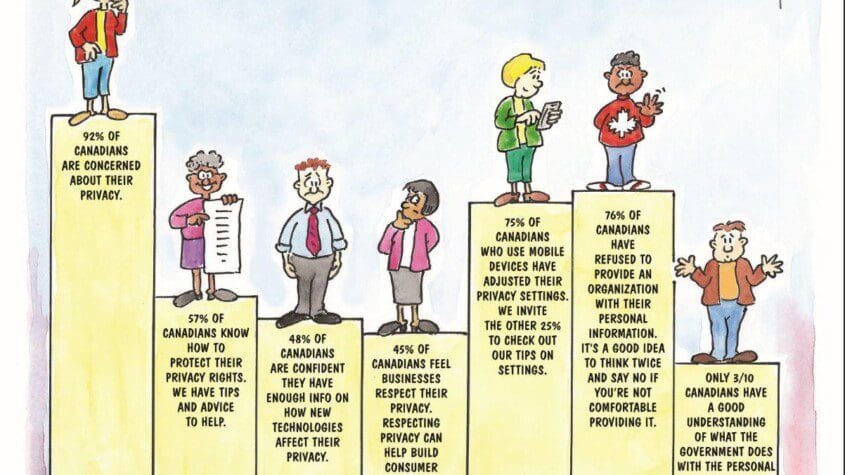
Canadians concerned about privacy online; want more control over their personal information: poll
Privacy Commissioner marks Privacy Awareness Week with release of biennial survey of Canadians
GATINEAU, QC, May 9, 2019 – Canadians feel they have little to no control over how their personal information is being used by companies and government and how it may be used to make decisions about them. They are also taking certain steps to protect their privacy, according to a new survey commissioned by the Office of the Privacy Commissioner of Canada.
“These results are a strong indication that a majority of Canadians are aware of privacy issues and they want businesses and government to respect their privacy and to comply with privacy laws,” Commissioner Therrien says.
“Privacy Awareness Week provides a good opportunity for everyone to take steps to protect their privacy and the privacy of others. We invite all Canadians to review the tips and guidance on our website and to reach out to our office with their privacy-related questions.”
In all, the vast majority of Canadians – 92 per cent – continue to express concern about the protection of their privacy. They are especially concerned about certain online practices.
For example, a majority (87%) expressed concern over social media platforms and how they gather information to create detailed profiles of individuals. Nine in 10 Canadians said they were also concerned about how online information may be used to make decisions about them, such as for a job, an insurance claim or health coverage.
As for who should be responsible for privacy protection, two thirds believe that responsibility lies with government.
Poll results suggest both the public and private sectors have work to do if they are to earn the confidence of Canadians. According to the survey, a little more than half (55%) of Canadians trust government to respect their privacy, while just 38 per cent say the same for businesses.
Canadians feel they lack control over how their personal information is being used by companies and government and want a say in how and to whom it is disclosed.
For instance, Canadians are more comfortable with the government sharing their personal information when it is with their consent. When consent is removed from the equation, their comfort level plummets. Three-quarters said they were uncomfortable with the federal government sharing their information with foreign governments, while two-thirds (64%) do not want government departments sharing their information with another department without their consent.
With respect to businesses, the vast majority of Canadians (86%) said companies should not be able to share their personal information for purposes other than to provide them with a service. Seven in 10 Canadians said they would be more willing to do business with a company if it faced the threat of heavy fines for misusing their data.
In the meantime, the survey results suggest Canadians are taking some privacy measures into their own hands.
Three quarters said they have adjusted their settings to limit the personal information shared via their mobile device. Virtually the same number (74%) have either not installed or uninstalled a mobile application over concern about the information they were being asked to provide.
When it comes to travel, 16 per cent said they made changes to their holiday plans because of privacy concerns related to border crossings. While a minority, it nonetheless represents millions of Canadians.
The survey of more than 1,500 Canadians was conducted in February. It is considered accurate within plus or minus 2.5 per cent, 19 times out of 20.
The results of the survey come as privacy champions across the country mark Privacy Awareness Week May 5-11. The annual event, celebrated around the world at various times during the month of May, is aimed at promoting and raising awareness of privacy issues and the importance of protecting personal information.

















